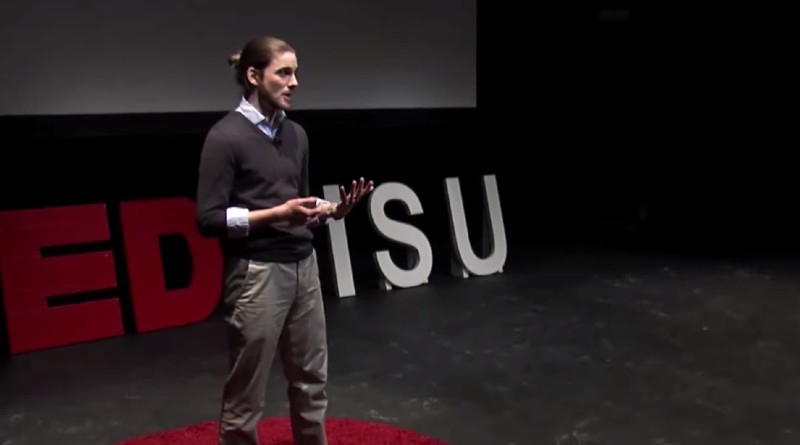Philosophy Professor Receives Prestigious Grant from National Endowment for the Humanities

Evan Rodriguez presents at TEDxIdahoStateUniversity.
Thanks to a grant from the National Endowment for the Humanities (NEH), Evan Rodriguez will spend the summer working on his book project, “Rivals or Relatives? Tracking Truth and Ways of Knowing among Plato and the Sophists in Classical Greece.”
Last month, the assistant professor of philosophy learned he had been awarded a Summer Stipend from the NEH, which supports advanced research valuable to humanities scholars and/or general audiences. The award is competitive, with a 9% funding ratio and an average of 77 awards per year.
“I see this grant as part of a welcome trend in showing how the humanities and CAL more broadly has been and continues to be positioned particularly well for advancing high quality research that dovetails with and really enhances our educational mission at ISU, including—but definitely not limited to—bringing in more grant funding,” Rodriguez said. “That fundamental goal of bringing people together and fostering a deeper understanding of ourselves and the world around us, of exploring what really matters most, is what motivates me and also what I think brings value to the work that we do in the Department of English and Philosophy and at ISU as a whole.”
Summer stipends support two months of full-time work on a humanities project, including compensation, travel and other research costs.
Rodriguez will spend that time challenging the dominant narratives about Plato’s rivalry with his sophistic contemporaries in classical Greece. In his book, he will highlight how both sides fostered new modes of inquiry in the Western tradition.
“A closer look at the methods of each within their historical context shows that, rather than showcasing a superficial opposition, the two sides were in fact part of a broader conversation that deepened each respective approach,” he said. “The book aims to show that the story of Greek philosophy is much more dialogical and inclusive than the dominant narratives suggest.”
Research for the project involves closely reading Platonic and sophistic texts in the original Greek and engaging with secondary literature on the topic, some of which is in French and German.
Rodriguez’s book is part of a larger project about why philosophy matters and how it can apply to our world today, he said.
“We see examples all around us of ways in which conversations break down: my research suggests a view of philosophy as a structured conversation, one that essentially involves taking both sides of a debate seriously as part of building towards a common goal,” Rodriguez said. “This is the view of philosophy that informs my teaching, too.”
